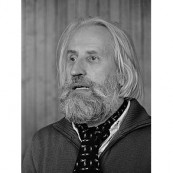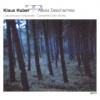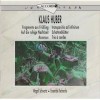| Country: | Switzerland |
| Period: | Contemporary classical music |
Biography
Klaus Huber (born 30 November 1924) is a Swiss composer.Klaus Huber studied violin at the Zurich University of the Arts with Stefi Geyer and composition with Willy Burkhard. He continued his studies with Boris Blacher in Berlin.[1] His international breakthrough came in 1959 with the world premiere of his chamber cantata "Des Engels Anredung an die Seele", at that time an unorthodox composition that uses consonant intervals within a strictly serial context.[2]
One of the leading figures of his generation in Europe, he has written extensively for chamber ensembles, choirs, soloists and the orchestra as well as the theater. Huber is a socially and politically conscious composer and his music often conveys a humanistic message.
Klaus Huber taught composition at the City of Basel Music Academy (1961–72) and at the Hochschule für Musik Freiburg (1973–90 ). He was also appointed director of the composition seminars at the Gaudeamus Foundation in Bilthoven, Netherlands, in 1966, 1968 and 1972.[3] Additionally, he held international visiting professorships and composition classes in (among others) Paris, London, Geneva, Milan, Lyon, Montreal, Sarajevo and Tatui (Brazil). Several students of Klaus Huber such as Brian Ferneyhough, Younghi Pagh-Paan, Toshio Hosokawa, Wolfgang Rihm and Kaija Saariaho became internationally recognized composers








